Are you wondering what a cancer coach is?
Maybe you’ve told a friend about your recent diagnosis, and they’ve mentioned a great cancer coach they know…
Or maybe you’re Googling how to overcome this challenge in the best way possible, and you’ve bumped into this concept for the first time…
Whether you’re a cancer patient, a cancer survivor, or are caring for someone with cancer, a cancer coach could be beneficial for you.
To help you know whether it’s the right path for you, this article aims to give you clarity on:
- What is a cancer coach
- How cancer coaching works
- How to choose the right cancer coach for you
- What a cancer coach can do for you whether you’re a cancer patient or a cancer survivor
- How a cancer coach can help you support a loved one through cancer
If you’re feeling lost, scared, or overwhelmed by the role cancer has in your life today, a cancer coach can be a valuable ally in your journey.
In fact, I became a cancer coach after realizing that’s what I would have needed to overcome cancer in a much better way.
Doctors –especially oncologists– have shared that after working with a cancer coach, their patients are more decisive and become more active in making decisions about treatments.
A cancer coach can help you feel more empowered, informed, and supported. They can provide you with the tools you need to make informed decisions and navigate the challenges ahead.

What is a cancer coach?
A cancer coach is a trained professional who provides support to cancer patients, survivors, and caregivers.
Unlike doctors and nurses who focus primarily on medical treatments, a cancer coach focuses on helping you cope with the physical, emotional, and practical challenges of cancer.
We do this by offering guidance, resources, and tools to help you navigate the complex and often overwhelming world of cancer.
A cancer coach can help you in many ways. We can:
- Provide you with clarity around your diagnosis and treatment options
- Help you manage the physical and emotional side effects of treatments
- Offer strategies for coping with the emotional impact of cancer – whether you’re a patient, caregiver, or survivor
- Help you choose the right doctor or treatment center for you
- Help you communicate effectively with your healthcare team, so you always feel empowered in making decisions that affect your health
Additionally, a cancer coach will provide you with resources and referrals to other professionals that will make your journey lighter and positive, such as nutritionists, therapists, and support groups if needed.
How does cancer coaching work?
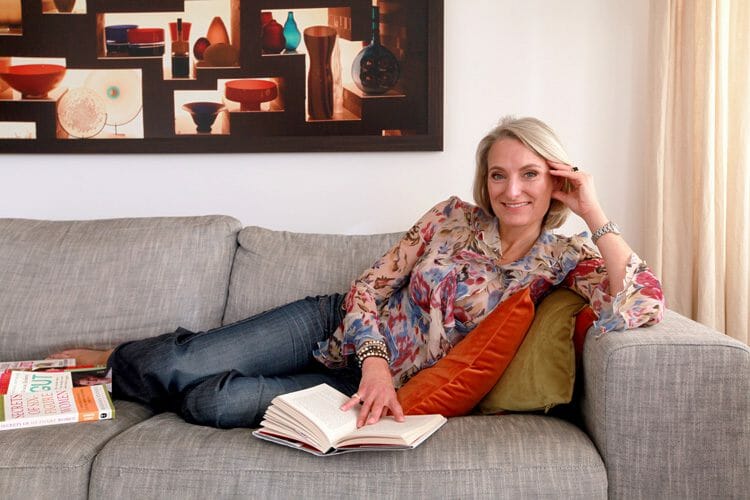
Cancer coaching is a personalized approach to cancer care that focuses on you as a whole person, not just the disease.
As a cancer coach, I work with patients, survivors, and caregivers to help make this journey easier, lighter, and more positive. This involves:
- Zero Judgement Policy
In my practice, clients are empowered with information to make the best choices for themselves. This means that I’ll be there to support whichever route you choose:
- Allopathic medicine
- Complementary medicine
- Other health practitioners
- Energy healers
- Therapists
- Information
Knowledge is power! I’m here to empower you by helping you understand your diagnosis and research the treatments that are most aligned with you. I help cancer patients understand what’s going on in their bodies from diagnosis to recovery and beyond.
- Emotional Support
Cancer can bring up difficult emotions like fear, sadness, and guilt.
As your cancer coach, I’m here to help you deal with them and express them in a healthy way so that this journey feels easier and more optimistic instead of sad and tiring.
With a cancer coach by your side, you’ll feel seen, heard, and understood by someone who is there for you.
- Practical Guidance
Nutrition, exercise, and other lifestyle factors can impact your overall health and well-being. They aren’t only important to prevent cancer – they can also help you go through treatments in a much better way.
As a food science engineer and health educator, I understand what your body needs to thrive during and after cancer.
I will help you with practical guidance on what has worked for me and my clients before, explaining the mechanisms behind my recommendations so you’re empowered over your own health.
- Goal-Setting
Cancer is only a chapter in your life. It’s not the whole book.
I’m a firm believer that this can be your opportunity to redefine yourself and start living the life of your dreams, just like I did.
Together, we’ll identify your unique needs and goals. Then, we’ll develop a plan to help you achieve them, and I’ll guide you all the way until you feel like you don’t need my help anymore.
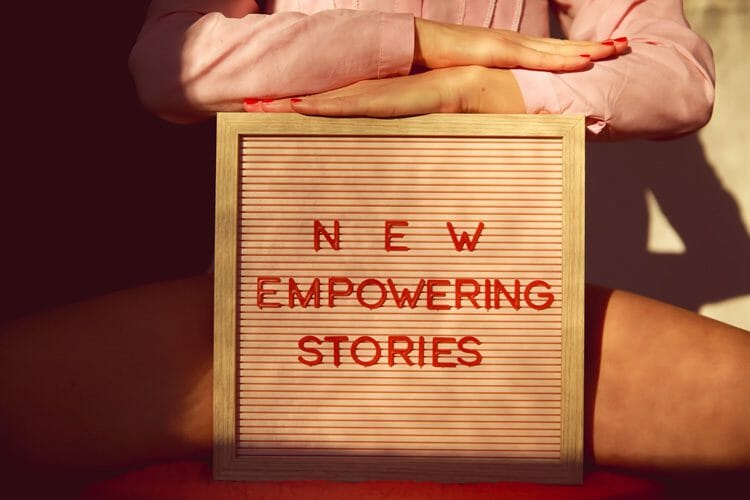
My Approach to Cancer Coaching
As a cancer survivor and coach, my goal is to empower you to take an active role in your cancer care and recovery.
I believe that everyone has the right to make their own decisions when it comes to health, and I am here to support you every step of the way.
My approach to cancer coaching is holistic, meaning that I take into account all aspects of your life and well-being.
After surviving breast cancer myself over 10 years ago, I developed my 10 Steps to Resilience coaching method to help women overcome cancer and feel like their best selves.
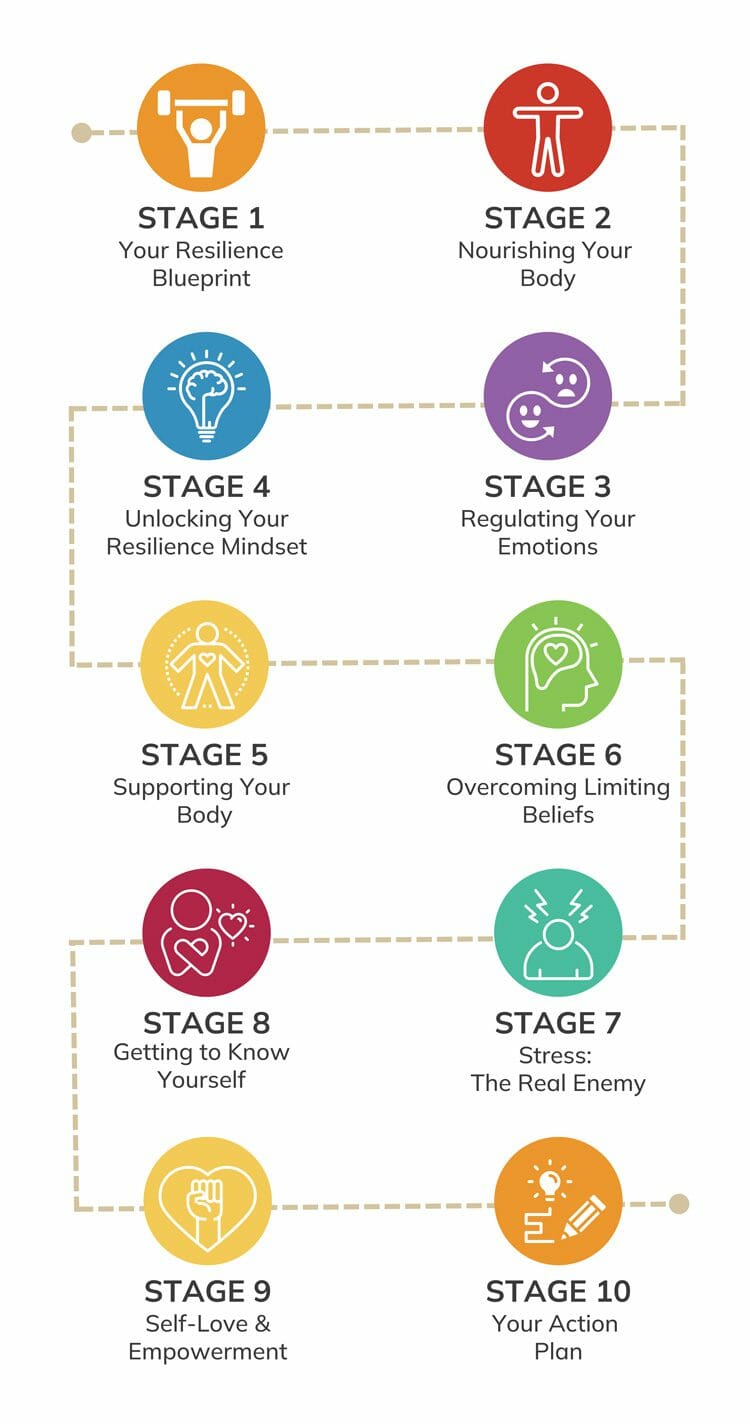
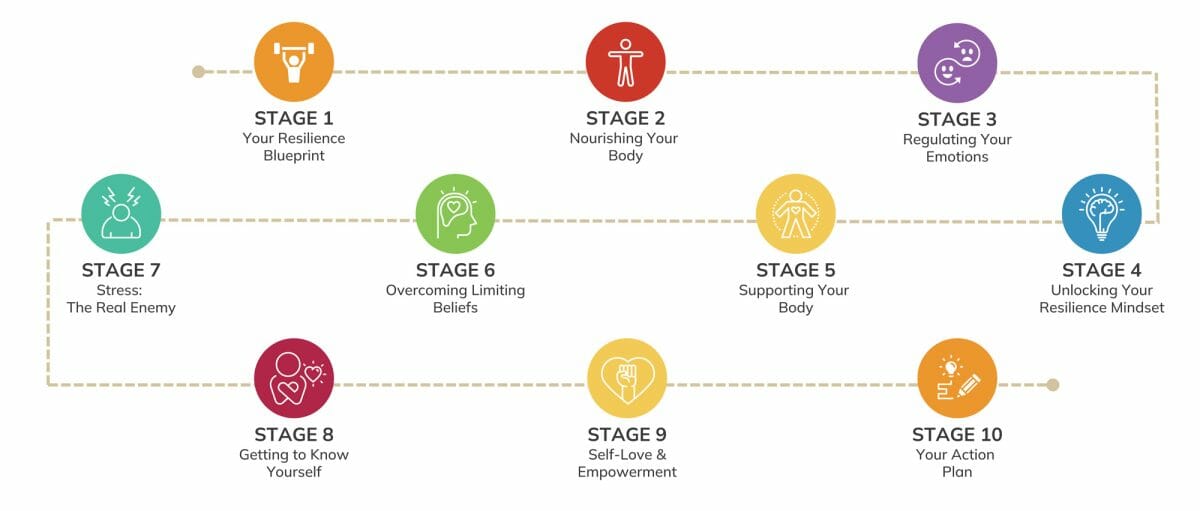
Learn more about 10 STEPS TO RESILIENCE here.
As your cancer coach, I don’t want anyone to go through what I went through at a time when there weren’t cancer coaches around…
I struggled! I spent a LOT of time searching for answers and getting frustrated. I had no idea how to handle my diagnosis, and that took a massive toll on my emotions.
Thankfully, the world seems to be opening up and there’s more information online today than ever.
However, that’s a double-edged sword that might waste your time unless you already know what works and what doesn’t.
Plus, the stigma still stands.
Cancer is viewed as a death sentence…
Cancer patients and survivors are still labeled ‘cancer’…
And the C word brings up fear in those who haven’t experienced it. Which makes diagnoses that much more shocking and bitter to process.

Some medical practitioners are tactless when it comes to communicating with patients, which often leads to feelings of helplessness and loss of hope.
A cancer coach is the exact opposite of that. So… Should you work with one?
How Does a Cancer Coach Help Cancer Patients?
I still remember getting diagnosed back in 2012.
As soon as the initial shock of hearing ‘you have cancer’ died down, I went into an emotional rollercoaster.
If you’re experiencing fear, guilt, sadness, anger, and shock, I know exactly how you feel – and that’s why you might need a cancer coach.
If you’ve just been diagnosed, a cancer coach can help you:
- Understand your diagnosis
- Understand your treatment options
- Find helpful information on your diagnosis and treatment
- Communicate your diagnosis to your loved ones
- Look for a second opinion
- Search for complementary practitioners
- Voice any concerns to your doctors
- Ask for support without guilt
A cancer coach can help you understand the medical jargon and explain the pros and cons of different treatment options. This can help you make informed decisions about your care and feel more in control of your situation.

If you’re already battling cancer, a cancer coach can help you tackle the physical and emotional side effects of your illness and treatments in a healthy way, such as:
- Managing stress and anxiety
- Expressing your emotions
- Improving your treatment outcomes with the right diet
- Lessening your treatment side effects through lifestyle changes
- Increasing resilience
- Dealing with physical changes
We can also connect you with support groups and other resources to help you feel less isolated and more connected to others who are going through similar experiences.
How Does a Cancer Coach Help Cancer Survivors?
If you survived cancer but are struggling to feel like yourself again…
You are not the only one.
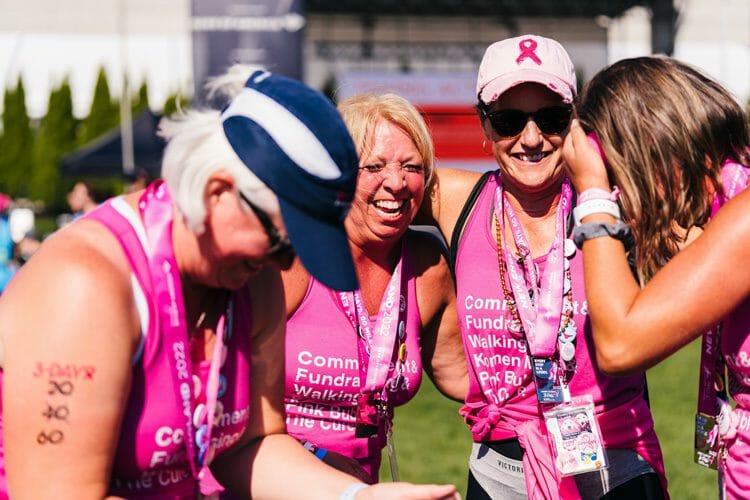
Feeling overwhelmed and struggling to move on with your life is a lot more common than you think.
Cancer can be a traumatic experience for your body and mind. But it also opens your eyes to how precious life is and how little time we all have on this planet.
That’s why it’s important to not only get ‘back to normal’…
It’s time to embrace life like never before!
And that’s where a cancer coach can help cancer survivors.
Having a cancer coach by your side will help you:
- Deal with post-cancer anxiety and depression
- Manage side effects from your treatments
- Develop coping strategies
- Benefit from your new resilience skills
- Replace your limiting beliefs with encouraging ones
- Understand how to prevent cancer from coming back
There’s a lot to gain from working with a cancer coach.
In my practice, I offer a safe and supportive space for survivors to process their emotions and work through their feelings.
It’s important that by working with a cancer coach, you:
- Feel seen and supported as a cancer survivor
- Gain back your confidence and self-esteem
- Feel more like yourself than ever before
- Use what cancer has taught you to live your best life
- Set goals for the future
- Create an action plan to achieve them
My goal is that you’ll stop surviving and start living, just like I did.

If you want inspiration from those who have reclaimed their life, check out these cancer survivor stories.
How Does a Cancer Coach Help Cancer Caregivers?
Looking after a loved one through cancer?
I know what you’re going through!
Unfortunately, I’ve had to witness both my parents go through cancer. And when I went through it myself, my loving husband was open about his struggles as a caregiver.
Contrary to what you might believe, that helped me!
It made me feel that we were in it together. We were a team, learning from cancer and supporting each other on the journey.
I know how challenging it can be to balance your own needs with your loved one’s needs…
You may even feel guilty when you put yourself first.
Working with a cancer coach can help you:
- Feel comfortable setting boundaries
- Express your thoughts openly
- Better understand what your loved one is going through
- Save time when researching a diagnosis or treatment options
- Support your well-being to better support your loved one
- Navigate the healthcare system with ease
- Connect with resources that will make your journey easier
- Find support groups to learn from other, more experienced caregivers
A cancer coach can also teach you the ropes when it comes to physical and emotional care for a cancer patient.
Learning how to cope with this situation and understanding your role in your loved one’s recovery will be beneficial for both of you.
As a cancer coach, I understand how invisible you might feel.

Everyone seems to be compassionate with the cancer patient while your own needs fade in the background.
You juggle your normal life with staying up all night to support their physical pain. You become a punching bag because cancer can be scary and tough!
Yet nobody sees your stress and anxiety…
And that’s extremely isolating.
That’s why having a cancer coach by your side can grant you the support you need.
In my practice, I help caregivers navigate the complex dynamics of family and relationships. I also provide them with guidance on how to communicate effectively with their loved ones and other family members.
If you’re struggling to support someone you love through cancer, consider reaching out to a cancer coach or joining a support group to meet other people who are in the same boat.
Trust me when I say that there is NOTHING you can think, say, or do, that is wrong. You deserve support on this journey too.
Click here to get information on the Online Cancer Coach Support Groups.
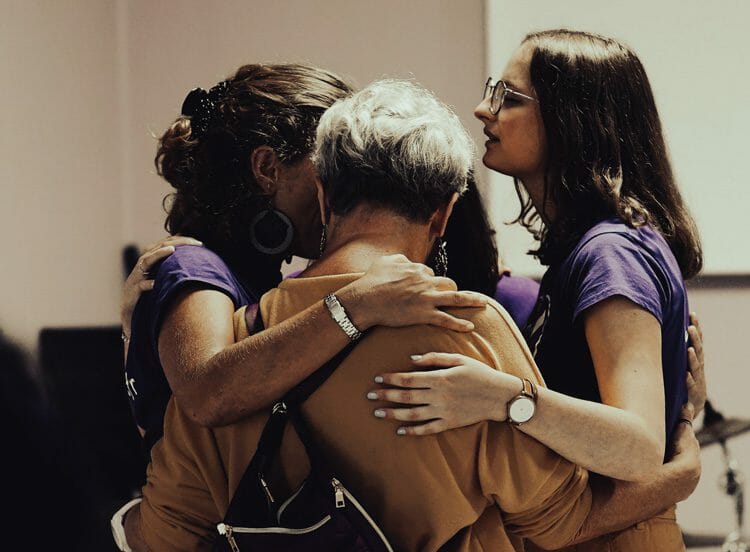
How to Choose a Cancer Coach
When it comes to choosing a cancer coach, there are several factors to consider.
You want to find someone who has experience working with cancer patients, survivors, and caregivers, and who has the right training and credentials.
Here are some tips to help you choose the right cancer coach for you:
- Look for someone with experience
You want to find a cancer coach who has experience working with people who are in a similar situation as you. Look for someone who has worked with cancer patients, survivors, and caregivers for at least a couple of years.
- Consider their approach
Different cancer coaches have different approaches to coaching. Some may focus more on emotional support and coping strategies, while others may focus more on practical advice and resources. Think about what you need most from a coach and look for someone who can provide that.
- Look for references
Don’t be afraid to ask for testimonials from other cancer patients, survivors, or caregivers who have worked with the coach you are considering. This can give you a better idea of what to expect from working with them.
- Trust your gut
Ultimately, you want to choose a cancer coach who you feel comfortable with and who you trust. If you don’t feel a connection with a particular coach, keep looking until you find someone who feels like the right fit for you.
- Get on a call
When you believe you’ve found the right cancer coach, get on a call with them before starting your sessions. Most coaches will offer a free discovery call where you can ask them questions and clear any doubts before signing up for coaching.
THE BOTTOM LINE
If you or someone you know is dealing with cancer, a cancer coach can be a valuable resource to help navigate through the challenges of the disease.
A cancer coach can help you to develop a positive mindset and maintain a sense of hope and optimism throughout this challenge and beyond.
They can be a valuable ally in helping you to stay focused on your goals and overcome any obstacles that may arise during and after your cancer journey.
Overall, a cancer coach can help you achieve the best possible outcomes for your health and well-being during and after cancer.
If you aren’t sure whether to work with a cancer coach, join my newsletter to get more information, resources, and support right in your inbox!

